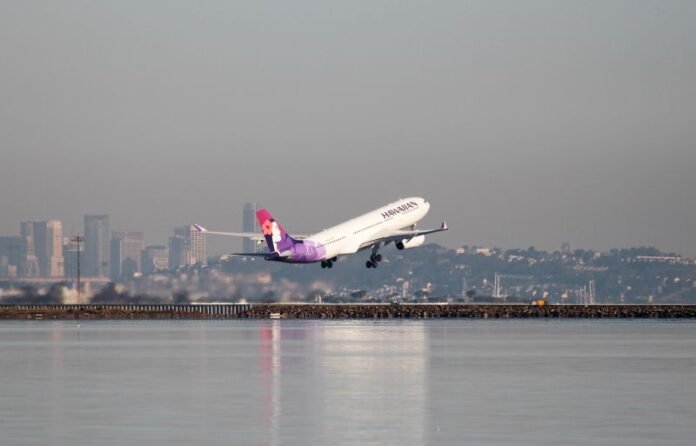Rising Threats: Cybercriminals Target the Aviation Industry
In recent weeks, a notorious cybercriminal group has turned its sights on the aviation sector, successfully breaching the computer networks of several airlines in the United States and Canada. This alarming trend has raised significant concerns among cybersecurity experts and airline executives alike, prompting urgent responses from the FBI and industry stakeholders.
The Nature of the Attacks
The recent hacking incidents have not compromised airline safety, but they have heightened vigilance among major airlines. The group behind these attacks, known as “Scattered Spider,” is notorious for its aggressive tactics aimed at extorting or embarrassing its victims. This shift in focus to the aviation industry marks a troubling development, especially as the summer travel season reaches its peak.
A Broader Trend in Cyberattacks
The aviation sector is not alone in facing these threats. In the past two months, Scattered Spider has also targeted the insurance and retail industries, indicating a broader strategy of attacking major business sectors in rapid succession. The FBI has warned that the group targets large corporations and their IT contractors, meaning that anyone within the airline ecosystem, including trusted vendors, could be at risk.
Response from Authorities
In response to these incidents, the FBI has been actively collaborating with aviation partners to address the ongoing cyber threats and assist affected victims. The agency has emphasized the need for heightened security measures across the industry, particularly as the hackers often deploy ransomware and steal sensitive data for extortion.
Impact on Airlines
Airlines such as Hawaiian Airlines and Canada’s WestJet have confirmed they are assessing the fallout from these cyberattacks, although they have not publicly named the perpetrators. Both airlines have reported that their operations remain unaffected, a sign of effective internal network separations and robust business continuity planning.
Jeffery Troy, president of the Aviation Information Sharing and Analysis Center (ISAC), noted that various segments of the aviation ecosystem are increasingly alert to attacks from financially motivated hackers, especially in light of geopolitical tensions worldwide.
The Importance of Cybersecurity
The fine margins for error in the airline industry were starkly illustrated recently when an unrelated IT outage caused delays for American Airlines passengers. This incident underscores the critical importance of cybersecurity in maintaining operational integrity.
In-house cybersecurity teams at major airlines are closely monitoring the situation, with firms like Google-owned Mandiant assisting in recovery efforts. Experts are urging airlines to secure their customer service call centers, which are often targeted by hackers.
Tactics of Scattered Spider
One of Scattered Spider’s preferred methods of infiltration involves calling help desks and impersonating employees or customers. This technique has proven highly effective in gaining access to the networks of large corporations. Given that airlines rely heavily on call centers for support, these centers represent a significant vulnerability.
Previous Attacks and Patterns
Scattered Spider gained notoriety in September 2023 when it was linked to multimillion-dollar hacks on Las Vegas casinos and hotels, including MGM Resorts and Caesars Entertainment. The group tends to focus on one sector for extended periods, as evidenced by their recent attacks on the insurance and retail industries.
Mandiant’s chief technology officer, Charles Carmakal, confirmed that the group’s core tactics have remained consistent, and multiple incidents in the airline and transportation sectors resemble Scattered Spider’s operations.
Conclusion
As the aviation industry grapples with these emerging cyber threats, the need for robust cybersecurity measures has never been more critical. With the potential for significant operational disruptions and data breaches, airlines must remain vigilant and proactive in their defenses against cybercriminals. The ongoing collaboration between industry stakeholders and law enforcement will be essential in mitigating these risks and ensuring the safety and security of air travel.


